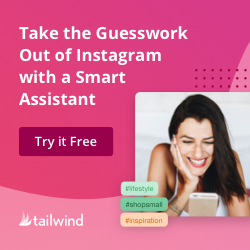Artificial intelligence is already making headlines when it comes to development or product innovation. In numerous ongoing experiments, Artificial Intelligence is already swaying the marketing industry where marketers are exploring new ways to achieve their targets. As a matter of fact, one can expect many AI-based iterations and improvements in the online marketing industry.

Introduction to Marketing
Marketing is the heart of any business and adds customer emotion into business planning. If you take marketing out of the equation, your target audience will never know the brand even exists.
The famous 4 P’s of marketing (Product, Price, Place, Promotion) tend to focus on building a brand’s reputation. Once a brand’s reputation has built a place in the user’s mind, it’s then just a matter of time when that user becomes a customer of the brand.
For years, marketers have relied heavily on advertisements to achieve their sales or conversion targets. In every era, the point of concern has always been to reach the target audience where the potential conversion is very high.
How has marketing evolved with time?
(A): Traditional Marketing vs Modern era marketing
Back in the 90s, whenever a new product was launched in the market; the prime source for user acquisition was to invest heavily in advertisements. The media for ad placement could be billboards, magazines, digests, newspapers, tv ads, etc.
Direct or one-to-one communication between advertisers and (potential) customers was scarce, and often difficult, because of the lack of right channels or methods. The brand pushed its ads to the public and there was no feedback directly from the public to the marketers.
With the advent of technology, the means of advertisement have evolved too. Now, in a glimpse, marketers can access real-time analysis of their campaigns, helping them to learn or drive innovation from their campaigns.
(B): How Modern-Era Marketing is occupying its presence and space in today’s era?
(I) How Augmented Reality & VR help marketers to enhance user experience?
With the numerous advancements in technology, the marketer is always trying new methods to boost their marketing strategy. With the introduction of Augmented Reality & Virtual Reality in industry, marketers felt they could increase the user experience to a new height.
Augmented Reality (ability to add a digital element to the current surrounding where a person can interact as in reality) came in presence with the intention of helping users solve product design challenges or dangerous mission planning such as trip to mars or deep-sea exploration.
Similarly, Virtual Reality (ability to perceive a different from your current environment) aimed to help people achieve those tasks which were nearly impossible from the reality grounds such as swimming with 100 dolphins or reach Mars from your comfortable sitting in the sofa.
With the rise of these two trending tech phenomenon, marketers realized why not include them in their marketing strategy to enhance marketing experience for their users.
Now users can experience augmented reality shopping when it comes to clothes purchase. A person can stand in front of the mirror and select the best matching clothes which fit his body style.
Similarly, before ordering online for furniture, a person can calculate the space the item would take in the room along with the matching of room color theme.
Similarly, Virtual Reality tried to fill the vacant spaces when it comes to playing games. In order to subdue players in gaming experience highly, games are promoted with the help of VR experience. This bonds players with the affection for the game and they invest their time and money heavily playing the game.
Pretty soon, marketers will merge the VR experience with exercise concept as well where players will be aware of the dual benefit of purchasing the game. For a moment they will be experiencing the gaming reality whereas on the other hand, their body will always be in motion and continuous exercising mode, saving their time for exercise later.
How Artificial Intelligence came into existence?
If a person searches on the internet, what is artificial intelligence? He is most likely to get 15 different version of definition from 15 different experts. To put it up in simple words, any algorithm or code embedded in the machine with the intention of making the machine smart and then within that machine learning being the primary subset.
The big tech giants of the industry have started heavily investing in AI in order to provide upscale quality of services while sustaining customer satisfaction. Some of these big giants are Alphabet, Apple, Facebook, Microsoft, Nvidia, Netflix, and PayPal. They have been famous for rolling out creative and innovative features within their products to show how and improved AI makes a difference.
What is artificial intelligence in marketing and what makes it so powerful?
What most people hear or use in marketing is basically the use of machine learning which is predicting the future outcomes based on the historical data. The key to machine learning is that machines get smarter and predictions get better without human intervention. Let’s take the example of Google Maps. This is the best-case scenario when it comes to AI and machine learning. What Google Maps do is that it makes a prediction in the most efficient way to reach from Point A to Point B. So how do Google Maps do it? If a person uses Google maps often, then the maps app determines the person’s way of traveling. On the basis of traveling data, it is able to predict the most efficient way to reach the destination. At the end of the day, it’s the human who takes the decision. The most frequently used apps such as Facebook to Instagram, from Amazon to Spotify, they all use user’s data to predict the user’s behavior. Wondering what makes it so powerful? Targeted Advertisement makes it so powerful. It would be very easy for companies to trigger user’s emotion for an event or a product based on the historical data.
Examples of Artificial Intelligence Marketing?
(A) Predictive targeting of advertisement
AI in marketing has made advertisement proficient day by day. With the historical data of user’s personality in hand, the machine can target people in niche based on their likings and dislikes. For example, if a person searches for a watch and perfume over the internet, that person is most likely to see a couple of ads of different watches and perfumes on a couple of different websites.
Marketers always want to pitch their product to the targeted audience by means of advertisement(s). Now with the help of AI, they can achieve this task very efficiently. With a huge amount of data in hand, they can train the AI machine to identify important variables.
(B) Predictive Analysis when it comes to sales or growth
Moreover, the use of AI for predicting sales and growth has revolutionized the industries. With the previous sales data at hand, Marketers can use the data to feed the AI machines to predict the industry-wide comparisons and economic trends to forecast the outcome of sales. AI in marketing can also help in making informed decisions at crucial times and help predict short or long-term outcomes by the estimation for the demand for a product in a given time period.
(C) Chat Bots
Marketers never would want targeted visitors or customers to leave their site without any purchase. To assist them by their query, chatbots are setup that could assist the incoming visitor in making up their mind for purchase. The chatbots are trained with an AI algorithm that could answer a most frequent asked query in a human-like a manner. This improves the communication both ways which lead to conversions.
Since chatbots are AI-driven, therefore whenever a new query from a user arises, it either passes immediately to the corresponding person at the spot or searches the internet for the most reliable answer that could satisfy the user. Once the chatbot determines the problem, it either provides a link to the most relevant blog for the query, or connects the concerned person for the detailed answer.
What can you expect in the future?
According to the research by the “State of Marketing”, there are some obstructions in executing artificial intelligence in marketing strategies. The three major barriers are financial limitations, customer privacy apprehensions, and lack of internal skill set of every individual employee. Regardless, businesses have recently started to uncover the potential of AI marketing.
In another survey from 2017, 79% of organizations stated that they don’t extensively use AI across the company.
Artificial Intelligence is an effective way for organizations to keep up with the ever-growing customer expectations. Nonetheless, it’s safe to say that artificial intelligence is the future of the marketing industry. Without any limitations, you can conveniently bring human experiences closer to the latest technology and its many benefits.






















